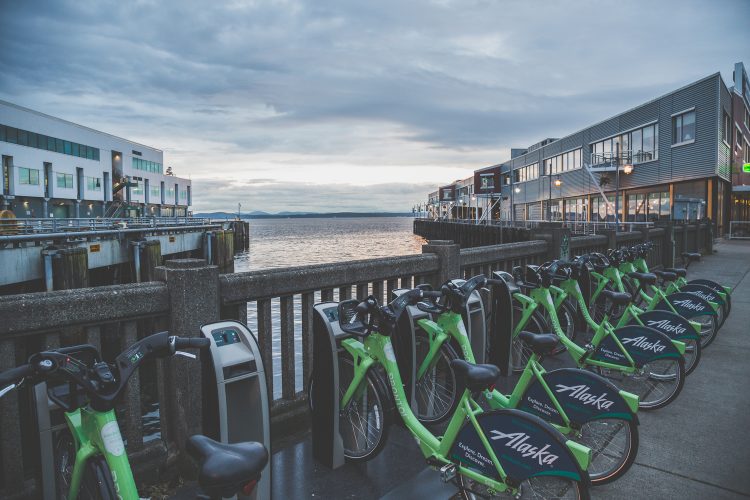Published on April 17, 2024

Written by Gustavo Sagrero Álvarez for KUOW.
Seattle’s streets have become home to hundreds of electronic bikes and scooters in recent years, with a growing number of commuters and hobbyists relying on them to get around. As usage of these lithium-ion battery powered devices grows, so has the number of fires in connection with them. That’s prompted the Seattle Fire Department to urge caution when using and storing the devices.
Last year, Seattle Fire saw 22 of those fires, with nearly half occurring at apartments and houses. The department has responded to six so far this year.
Putting those fires out presents unique challenges, adding to officials’ concerns.
“Putting water on this type of fire is not normally enough to fully extinguish it because the compromised [battery] cells can reignite moments later,” Seattle Fire Department spokesperson David Cuerpo said in an email.
Also at play is that e-bikes and e-scooters often run on low-quality batteries, according to University of Washington chemical engineering professor Daniel Schwartz.
“They’re still carrying a fair amount of energy,” he said. “But they tend to be the lowest cost, mass-produced battery products — less engineered, less safety standards.”
The U.S. Consumer Product Safety Commission on Monday issued a warning about Unit Pack Power (UPP) batteries, an after-market brand of lithium-ion batteries often used to power e-bikes. The notice follows several reports of fires and serious property damage caused by the batteries, which are manufactured in China and “have not been certified by an accredited laboratory to the applicable Underwriters Laboratories safety standard to ensure protections.” Underwriters Laboratories is widely considered the global authority on electronic product safety.
Schwartz likened lithium-ion batteries, generally, to unopened bottles of soda: The more they are banged up and mistreated, the more chances there are of something going wrong.
“The basic idea of a battery is that within a hair’s distance from each other, you’ve got this strong oxidizer and a fuel that — if they touch each other — they burn,” Schwartz said.
Seattle’s streets have become home to hundreds of electronic bikes and scooters in recent years. As usage of these lithium-ion battery powered devices grows, so has the number of fires in connection with them. Continue reading at KUOW.